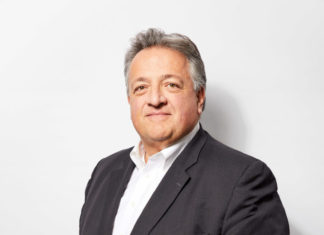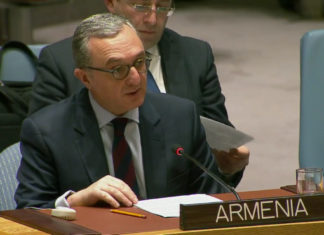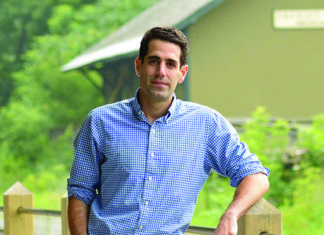DEARBORN, Mich. — The Armenian Research Center at the University of Michigan-Dearborn will host an unprecedented, multi-disciplinary, international academic conference on the “Armenians and the Cold War,” which will be held on the university’s campus on April 1-3.
Thirty scholars from North and South America, Europe, and Armenia will participate in the conference.
On the international arena, the Cold War extended from the end of the Second Word War in 1945 to the disintegration of the Soviet Union in 1991. Armenians around the world, however, had become divided between pro- and anti-Soviet factions as soon as Communists had gotten hold of Eastern Armenia in late 1920. The first panel of the conference (speakers: Garabet K. Moumdjian, Vahe Sahakyan, and Hazel Antaramian Hofman) will focus on the period from the 1920s to 1947, attempting to explain the political dynamics among Armenians, especially in the Diaspora, before the rest of the world formally entered the Cold War era. Discussions during this panel will constitute an important step toward finding out what exactly changed in the Armenian Diaspora and in the relations between the Soviet Armenian homeland and the Diaspora with the onset of the global Cold War in the mid-1940s.The Cold War inevitably affected the Armenians, not only in Soviet Armenia, but also in the many Armenian communities scattered across the world. This time period will be discussed at the conference through a series of regional panels. Levon Chorbajian, Gregory Aftandilian,and Benjamin F. Alexander will focus on North America.
Jirair Jolakian and Astrig Atamian will present papers on conditions among the Armenians in France. Developments in South America will be covered through presentations by Vartan Matiossian, Heitor Loureiro, and Khatchik DerGhougassian. Furthermore, there will be five separate papers on the Armenian communities in the Middle East by Hratch Tchilingirian, James Stocker, Khatchig Mouradian, Eldad Ben-Aharon, and Emre Can Daglioglu. These panels are structured in such a way so as to generate discussion on comparing the specifics of the Cold War fault-lines in various Armenian-inhabited localities and determining the differences in Cold-War-era, intra-Armenian conflict and rivalry from one continent to another. There will also be a separate panel on relations between Soviet Armenia and the Diaspora during this period (speakers: Nélida Boulgourdjian and Gevorg Petrosyan). A roundtable discussion comparing the chronologies of global Cold War and the Armenian “Cold War” will cap the political history debate at the conference.
The last two panels deal with case studies of the impact of the Cold War on Armenian historiography (speakers: Samvel Grigoryan and Anush Hovhannisyan), arts (Neery Melkonian), and popular culture (Tigran Matosyan). Thereafter, the conference will conclude with a second roundtable discussion, which will tackle the legacy of the Cold War on Armenians today and make recommendations for future research in this domain.
Panel chairs and discussants also include Cam Amin, Kevork Bardakjian,Tamar Boyadjian, Richard G. Hovannisian, Asbed Kotchikian, Simon Payaslian, Pam Pennock, Ara Sanjian and Sally Howell.








